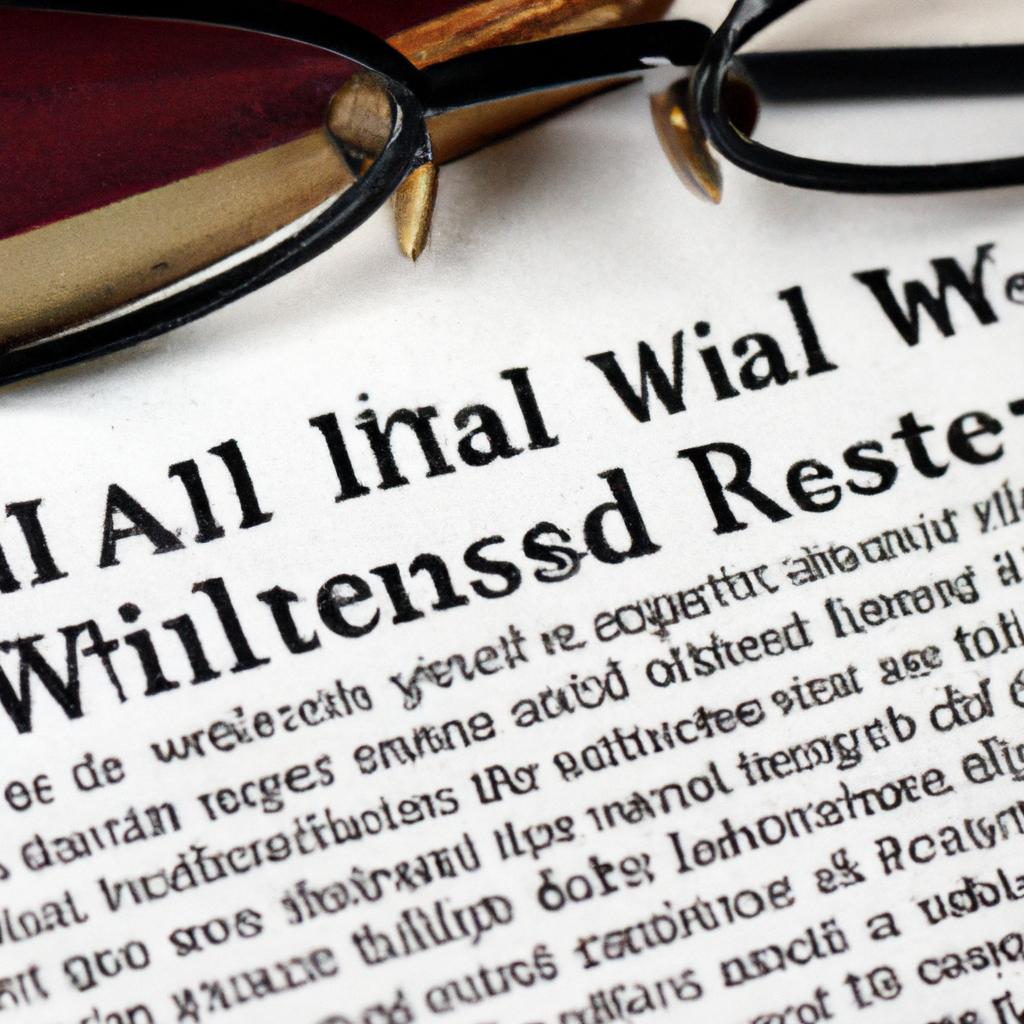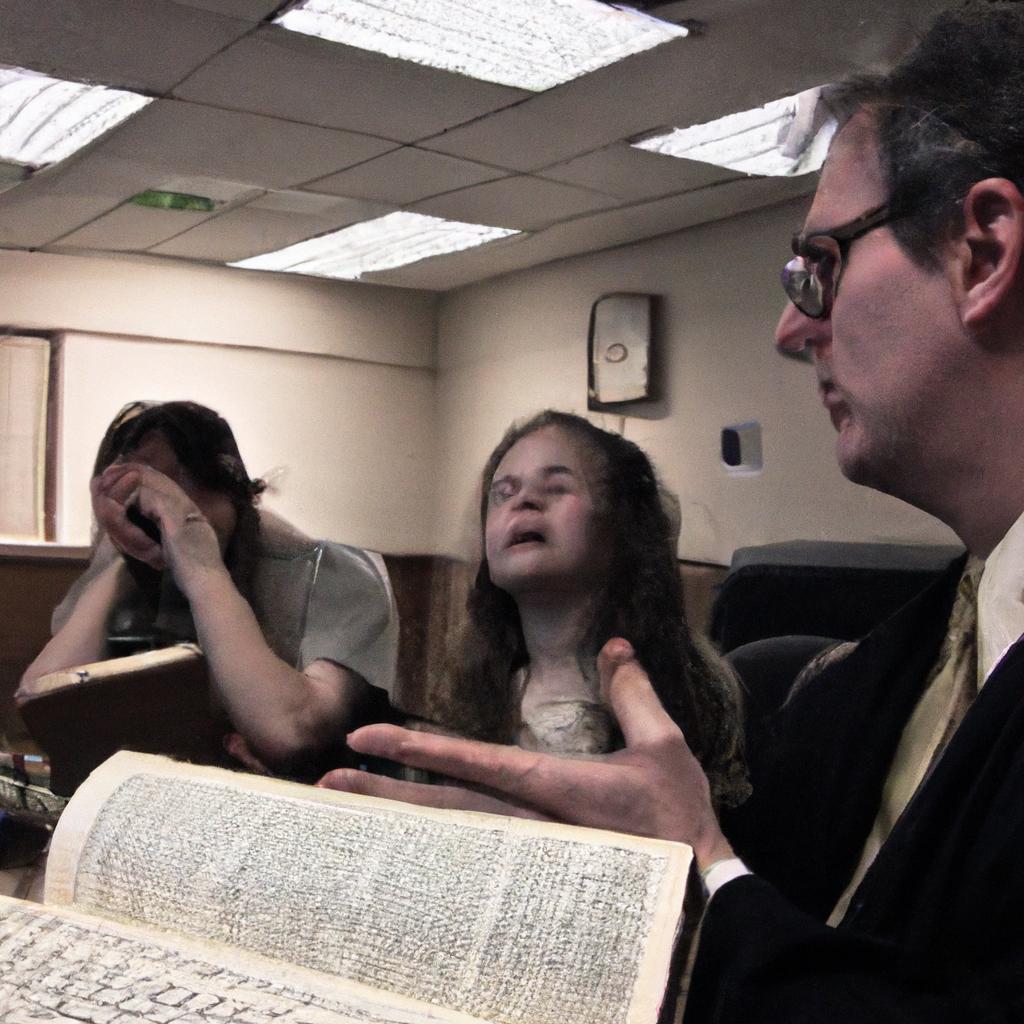As seasoned legal professionals at Morgan Legal Group in the heart of New York City, we often find ourselves navigating the intricate realm of estate planning and probate processes. One crucial aspect of this journey is the timely and meticulous examination of a last will and testament. In this article, we will delve into the question of when one should read a will, exploring the importance of this momentous document in the realm of elder law, Wills, and trusts. Join us as we unravel the intricacies of this essential legal procedure and delve into the critical considerations that come with it.
Understanding the Importance of Reading a Will
Ensuring that you understand the importance of reading a will is crucial in the estate planning process. When a loved one passes away, their will contains vital information regarding the distribution of their assets and belongings. By thoroughly reviewing the contents of the will, you can ensure that the deceased’s final wishes are carried out as intended.
Reading a will is not only important for legal reasons but also for emotional closure. It provides clarity on how the deceased wanted their estate to be divided, which can alleviate potential conflicts among family members. Additionally, understanding the terms outlined in the will can help you make informed decisions regarding your own estate planning needs. It is essential to consult with a legal professional, such as the experienced team at Morgan Legal Group in New York City, to ensure that the reading of the will is done accurately and according to the law.

Key Factors to Consider Before Reading a Will
One of the key factors to consider before delving into the contents of a will is the time and place of the reading. **Ideally, a will should be read after the individual has passed away**, as this is when the document becomes legally valid. In some cases, the executor may choose to read the will immediately after the death of the individual, while in others, it may be read at a later time and location that is convenient for all parties involved.
Another important factor to consider is the presence of witnesses during the reading of the will. Having witnesses present can help ensure the validity of the document and prevent any disputes or challenges to its contents. It is also essential to consider the emotional state of the beneficiaries and ensure that they are prepared for any surprises or unexpected provisions in the will. By carefully considering these key factors before reading a will, you can help ensure a smooth and orderly distribution of assets according to the wishes of the deceased individual.
| Benefits |
|---|
| Clarity on asset distribution |
| Prevention of disputes |
| Peace of mind for beneficiaries |

The Process of Reading and Executing a Will
After the passing of a loved one, the process of reading and executing their will is a crucial step in ensuring their final wishes are carried out accordingly. The reading of a will typically takes place after the funeral and is usually done by the executor or a legal representative. This is a solemn occasion where the contents of the will are revealed to the beneficiaries.
Once the will has been read, the executor must begin the process of executing the will, which involves carrying out the instructions outlined in the document. This may include distributing assets to beneficiaries, settling debts and taxes, and handling any other matters specified in the will. It is important to follow the legal procedures and requirements set forth by the state to ensure a smooth and lawful execution of the will.

Seeking Legal Guidance for Complex Will Interpretations
When it comes to the complex interpretation of a will, seeking legal guidance is crucial to ensure that the wishes of the deceased are carried out accurately and legally. Understanding the intricate language and nuances within a will can be challenging, especially when multiple parties are involved or when the terms are not clearly defined. In these situations, a skilled estate planning attorney can provide valuable insight and guidance to navigate through the complexities of will interpretations.
Some key considerations for include:
– **Analyzing language:** A thorough analysis of the language used in the will is essential to determine the intent of the deceased.
– **Identifying potential conflicts:** Identifying any potential conflicts or ambiguities within the will can help prevent disputes among beneficiaries.
– **Navigating legal requirements:** Understanding the legal requirements for interpreting a will can ensure that the process is conducted in accordance with the law.
– **Resolving disputes:** In the case of disputes or disagreements among beneficiaries, legal guidance can help facilitate communication and reach amicable resolutions.
Q&A
Q: When should you read a will?
A: The reading of a will typically occurs after the death of the person who created it.
Q: Can anyone read a will?
A: In most cases, only the executor of the will or an attorney will have access to the document.
Q: Is there a specific time to read a will?
A: Generally, the will is read after the funeral arrangements have been made and the executor is ready to begin the probate process.
Q: What happens if a will is not read?
A: If a will is not read or not found, the estate will likely be distributed according to state laws of intestacy.
Q: Can a will be read before death?
A: Most wills are not read before death, as they are considered private documents until the individual passes away.
Q: Who should be present when a will is read?
A: Typically, the executor, beneficiaries, and possibly an attorney are present when a will is read.
Key Takeaways
As we’ve discussed, the timing of when you read a will can vary depending on the circumstances surrounding the document. Whether you choose to read it immediately after a loved one’s passing or at a later date, it is important to approach the process with sensitivity and respect. The contents of a will can hold valuable information and provide insight into the wishes of the deceased, so it is crucial to handle this task with care. Remember, the reading of a will can bring about a range of emotions, so be sure to surround yourself with a support system as you navigate this process. Ultimately, reading a will can offer closure and clarity during a difficult time, allowing you to honor the wishes of your loved one and move forward with confidence.












